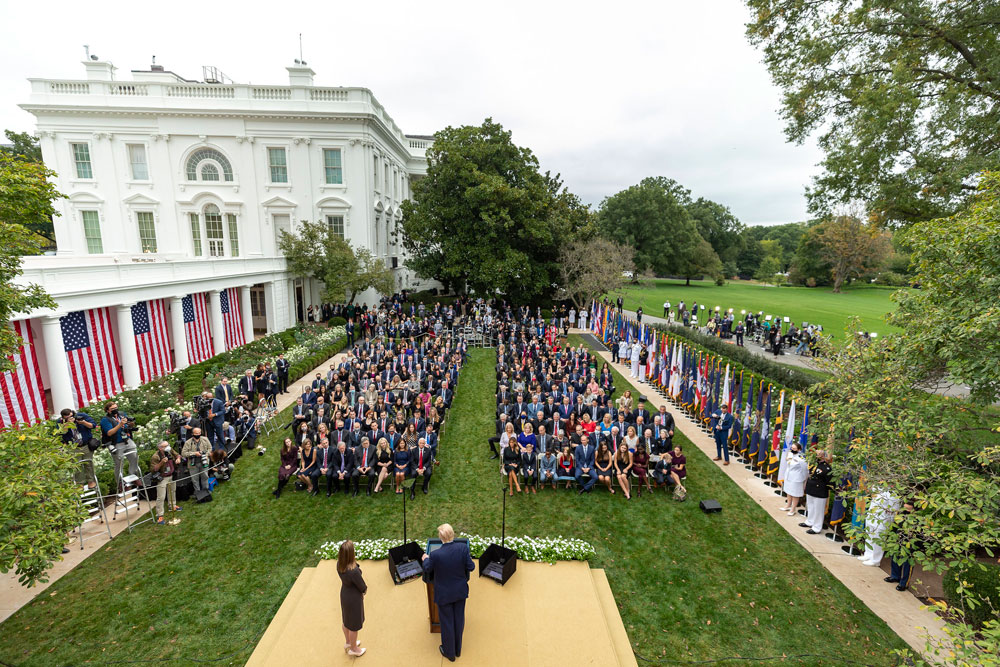
September 27, 2020; New York Magazine
With the looming confirmation of Amy Coney Barrett to the US Supreme Court comes yet another step in a decades-long political effort to reshape the federal courts, led by a network of 501c4s that have groomed future conservative judges. Their 501c4 status allows those paying these bills to remain in the shadows, out of public sight.
Consider the Judicial Crisis Network (JCN). It was formed in 2004 as a tax-exempt 501c4 “social welfare” organization, a category once intended to support such activities as civic leagues and volunteer fire departments. JCN’s stated mission is to “support efforts to ensure only highly qualified individuals who share this vision comprise our state and federal courts and staff executive branch offices that administer and enforce the law.” Alongside JCN stand other “social welfare” nonprofits like Americans for Prosperity (AFP).
According to Andrew Perez, writing for the Daily Poster, JCN spent up to $27 million to “block President Barack Obama’s 2016 Supreme Court pick and place conservative jurists Neil Gorsuch and Brett Kavanaugh on the high court,” and they’ll spend at least $10 million more to support Barrett, starting with an initial $3 million media buy, with added lobbying support from AFP and the US Chamber of Commerce. Casey Mattox, AFP’s Vice President for Legal and Judicial Strategy, described to CNBC their intent to hit the campaign trail to take over the court: “A full-scale campaign is now underway to mobilize our grassroots activists across the country to drive the confirmation of Judge Amy Coney Barrett to the high court. We’ll be lighting up senators’ switchboards.”
These efforts use the 501c4 structure to allow them to keep their politically motivated donors secret. According to JCN’s 2018 Form 990, of its total $29.6 million in revenue, $23.8 million came from five anonymous donors. Perez notes, “JCN received $15.9 million from a single anonymous donor between July 2018 and June 2019, the tax period covering the Kavanaugh fight.” But there’s more. The judges that nonprofits like the JCN and AFP are ready to push forward are being curated by the Federalist Society, operating with tax deductible support as a 501c3 public charity. US Senator Sheldon Whitehouse (D-RI), who sits in the middle of the battle for the federal courts as a member of the Senate Judiciary Committee, describes them as a “vehicle for powerful interests” that seeks “not to simply ‘reorder’ the judiciary, but to acquire control of the judiciary to benefit their interests.”
Sign up for our free newsletters
Subscribe to NPQ's newsletters to have our top stories delivered directly to your inbox.
By signing up, you agree to our privacy policy and terms of use, and to receive messages from NPQ and our partners.
The impact of this effectively coordinated, financially lush nonprofit network is clear. Steven Teles, the author of Rise of the Conservative Legal Movement, described its influence to the New Statesman: “I think this ideological network that we associated with the Federalist Society has clawed away more and more power from that senatorial role over time.”
The rules that JCN and the Federalist Society use are not just used by conservatives; NPQ has covered the use of coordinated political efforts by 501c4s on the left as well. When it comes to the judiciary, though, it is clear that liberals just haven’t been as effective or focused as the right. According to Politico, citing Caroline Fredrickson, president of the liberal American Constitution Society (ACS), “Liberals…are more inclined to be attached to individual social causes. Left-leaning philanthropy tends to be ‘short-term performance based’ [while] conservatives, she says, ‘have an interest in funding infrastructure.’” And the results bear Frederickson out:
The Federalist Society has more student chapters, more than twice as many lawyer chapters and a huge fundraising edge. In 2016, ACS had total revenues of approximately $6.5 million, while the Federalist Society took in $26.7 million. And the relative impact of the organizations can hardly be compared. The federal and state judiciaries are filled with Federalist judges, but there are no “ACS” judges to be found on the Supreme Court or the federal benches.
As David Pozen, professor of law at Columbia Law School, observed in an Atlantic opinion piece, this model “raises new challenges for government officials and nonprofit leaders alike.” The current reality has allowed wealthy people, conservative and liberal, to take advantage of the reputational strength and the tax advantages of the nonprofit community for their own political objectives.
Of course, this intersection of nonprofits and politics is hardly new. But some limits are needed here. Too often, the current system seems to simply be that justice goes to the highest bidder.—Martin Levine













